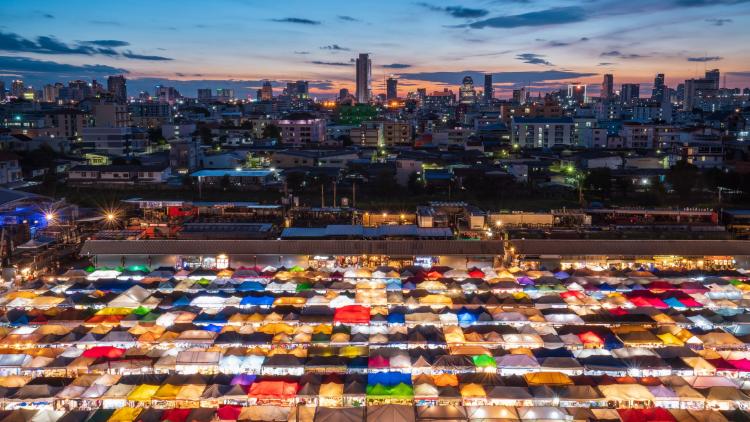The ancient town of Si Thep in Thailand: A crossroads of Indianization

Key information
- Date
- Time
-
6:00 pm to 8:00 pm
- Venue
- Russell Square: College Buildings
- Room
- Khalili Lecture Theatre (KLT)
About this event
The ancient town of Si Thep, located in the western margin of the Khorat Plateau in northeast Thailand, stands as one of the largest and most enigmatic sites in mainland Southeast Asia, flourishing between the mid-to-late first millennium CE and around the thirteenth century.
Through excavations and archeological surveys spanning decades, the site has unveiled a treasure trove of Hindu‒Buddhist sculptures and important architectural remnants. Moreover, the discovery of numerous ancient inscriptions in Sanskrit, Pali, Chinese, Old Khmer, and possibly Old Mon adds further layers of scholarly interest. Positioned on the outskirts of the Indianized kingdoms of Dvāravatī and Zhenla (later Angkor), Si Thep emerges as a pivotal nexus in the early history of the region, facilitating vibrant cultural exchange networks between the Indian Ocean and the South China Sea. Recently designated as a UNESCO World Heritage Site, Si Thep continues to captivate scholars and enthusiasts alike.
About the speaker
Dr Nicolas Revire, a native of France, holds a doctoral degree from the Université Paris 3, Sorbonne Nouvelle, specializing in Hindu‒Buddhist art and archeology, with a particular focus on mainland Southeast Asia. He served as the general editor of Before Siam: Essays in Art and Archaeology (2014) and Decoding Southeast Asian Art: Studies in Honor of Piriya Krairiksh (2022).
With nearly two decades of teaching and research experience at Thammasat University in Bangkok, he currently holds the Daniel F. and Ada L. Rice Research Fellowship at the Art Institute of Chicago. In this role, he contributes expertise to both the Arts of Asia and Curatorial and Documentation Research departments. Additionally, he serves as the managing editor of the Journal of the Siam Society.
Contact
- Organiser: SOAS Centre of South East Asian Studies
- Email: centres@soas.ac.uk




